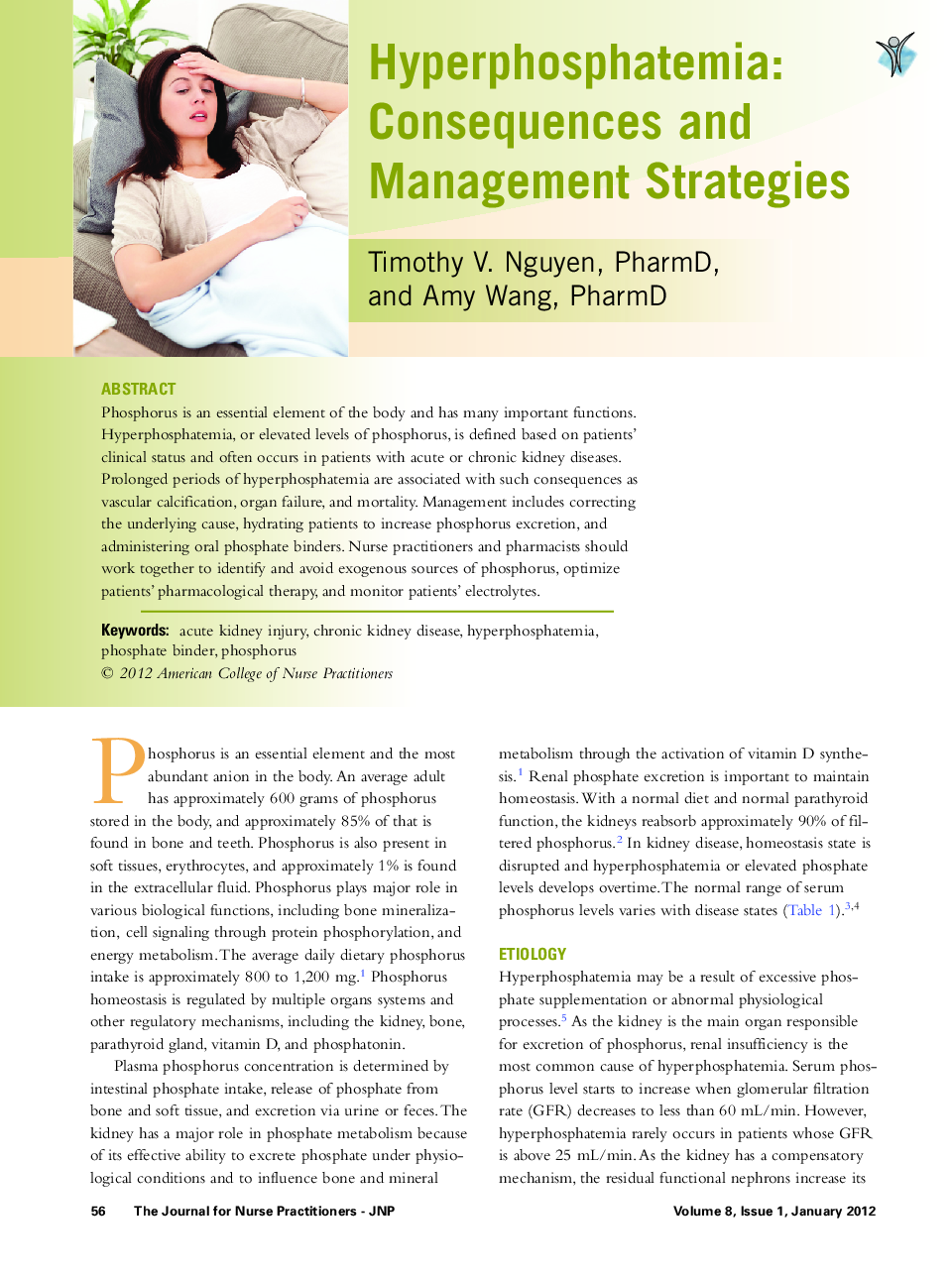| Article ID | Journal | Published Year | Pages | File Type |
|---|---|---|---|---|
| 2662437 | The Journal for Nurse Practitioners | 2012 | 5 Pages |
Abstract
Phosphorus si an essential element of the body and has many important functions. Hyperphosphatemia, or elevated levels of phosphorus, is defined based on patients' clinical status and often occurs in patients with acute or chronic kidney diseases. Prolonged periods of hyperphosphatemia are associated with such consequences as vascular calcification, organ failure, and mortality. Management includes correcting the underlying cause, hydrating patients to increase phosphorus excretion, and administering oral phosphate binders. Nurse practitioners and pharmacists should work together to identify and avoid exogenous sources of phosphorus, optimize patients' pharmacological therapy, and monitor patients' electrolytes.
Related Topics
Health Sciences
Medicine and Dentistry
Medicine and Dentistry (General)
Authors
Timothy V. Nguyen, Amy Wang,
